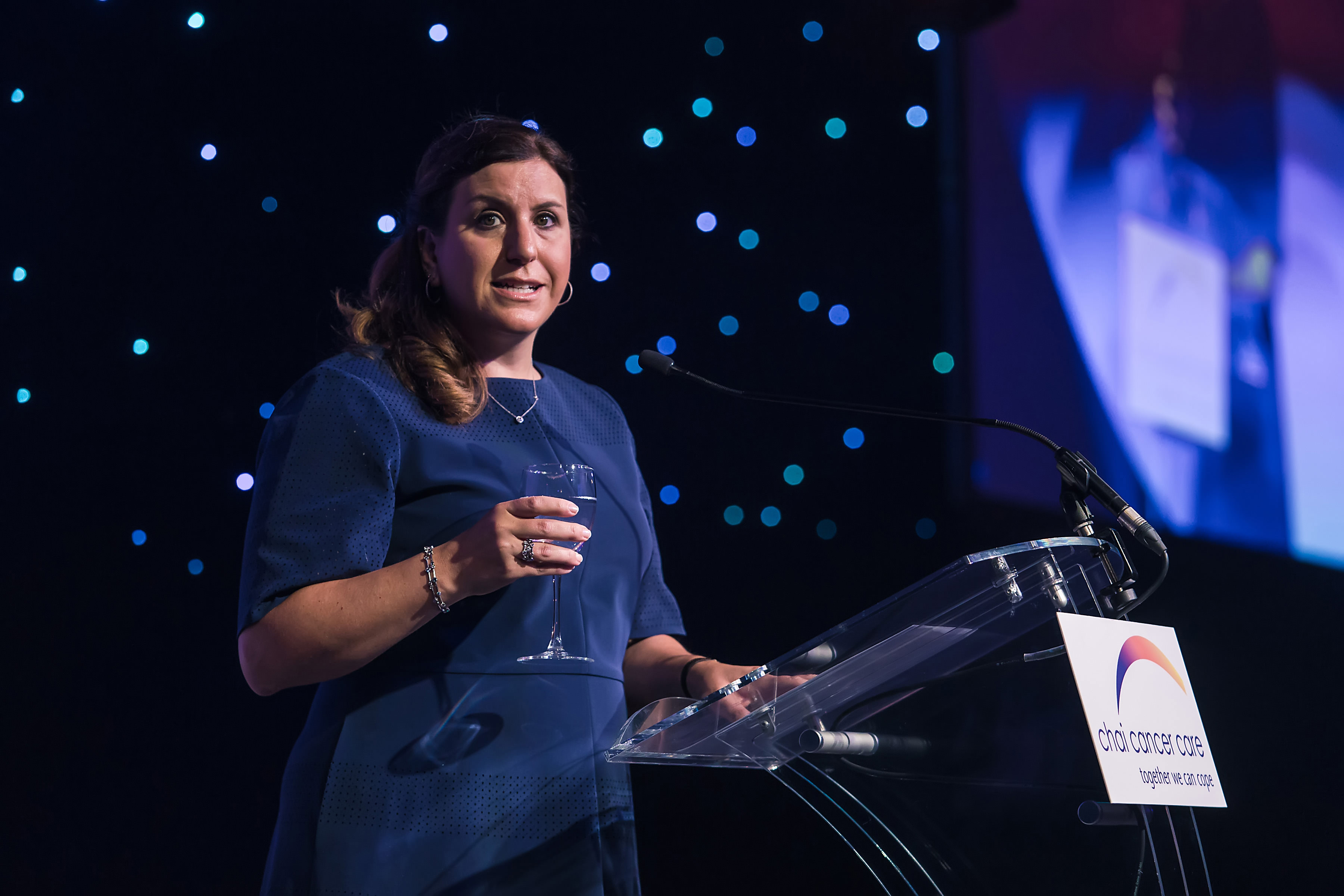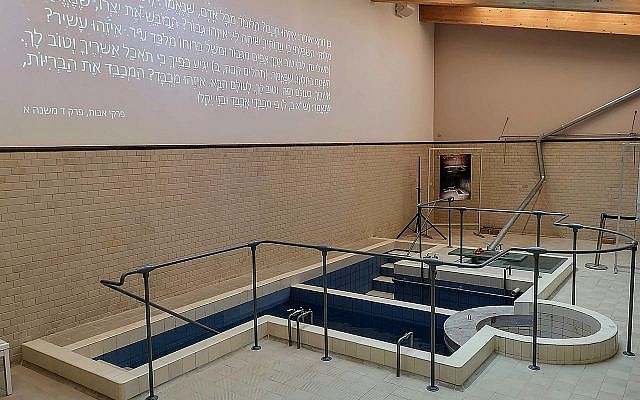Charities enlist mikvot in battle to beat breast cancer
Guide for attendants at the ritual baths help for greater sensitivity and awareness of women dealing with the disease
Jewish cancer charities working with breast cancer survivors have issued new guidance around using religious baths before, during and after treatment.
It aims to raise sensitivity and awareness of the physical and emotional consequences of breast cancer for women using a Jewish ritual bath, or mikveh.
The guide was launched by Michal Mocton, 41, who had breast cancer six years ago, and identified a need to train attendants, who may be the only other person to see the woman naked.
Mocton worked with Chai Cancer Care and Naomi Marmon Grumet at the Eden Center in Jerusalem to develop the guide, having identified that breast cancer treatment and its implications were subjects that mikveh attendants were often unfamiliar with.
“It is important for all balaniot (attendants) to understand the physical and emotional impact that going to the mikveh after a cancer diagnosis can have on a woman,” Mocton said.

Many women with breast cancer may expect not to go to the mikveh during treatment, because chemotherapy can stop menstruation, but treatments affect women differently, so those with breast cancer may still visit the mikveh during diagnosis and treatment, and after treatment.
The guide tells attendants that women with cancer often feel “fear and anxiety” about using the mikveh after diagnosis, surgery or during chemotherapy.
“A woman may not have shown her scars to anyone except her doctor,” it says. “Even her husband may not have seen them. Exposing herself to the attendant may be embarrassing, frightening, or overwhelming and fraught with tension.”
One cancer survivor recalls that although she hoped that returning to the mikveh would “feel like a normalising experience, the focus on preparing my body for immersion reminded me of my feeling damaged and unattractive”.
Breast cancer is a particular concern in the Jewish community, where one in eight Jewish Ashkenazi women will develop it during the course of their lifetime – a far higher percentage than the national average.
This is because roughly one in 40 Ashkenazi Jews – men and women – carries a BRCA gene mutation, and recent studies show that Sephardi Jews may also be genetically predisposed to hereditary breast and ovarian cancer.
Increasing numbers of women are now choosing to perform prophylactic breast removal after discovering that they have the BRCA gene, to reduce their chances of breast cancer. This is when a woman has an elective mastectomy as a way of prevention.
“Extreme care is needed not to question their personal decisions,” the Chai guide explains. “It is important to make them feel welcome and cared for in the mikveh and be careful not to stare no matter what their body looks like.”
Chai chair Louise Hager praised Mocton for her “commitment and determination in raising the issue above the parapet, and sharing it with Chai in order that we can assist in bringing it to the attention of a broader audience”.

Thank you for helping to make Jewish News the leading source of news and opinion for the UK Jewish community. Today we're asking for your invaluable help to continue putting our community first in everything we do.
For as little as £5 a month you can help sustain the vital work we do in celebrating and standing up for Jewish life in Britain.
Jewish News holds our community together and keeps us connected. Like a synagogue, it’s where people turn to feel part of something bigger. It also proudly shows the rest of Britain the vibrancy and rich culture of modern Jewish life.
You can make a quick and easy one-off or monthly contribution of £5, £10, £20 or any other sum you’re comfortable with.
100% of your donation will help us continue celebrating our community, in all its dynamic diversity...
Engaging
Being a community platform means so much more than producing a newspaper and website. One of our proudest roles is media partnering with our invaluable charities to amplify the outstanding work they do to help us all.
Celebrating
There’s no shortage of oys in the world but Jewish News takes every opportunity to celebrate the joys too, through projects like Night of Heroes, 40 Under 40 and other compelling countdowns that make the community kvell with pride.
Pioneering
In the first collaboration between media outlets from different faiths, Jewish News worked with British Muslim TV and Church Times to produce a list of young activists leading the way on interfaith understanding.
Campaigning
Royal Mail issued a stamp honouring Holocaust hero Sir Nicholas Winton after a Jewish News campaign attracted more than 100,000 backers. Jewish Newsalso produces special editions of the paper highlighting pressing issues including mental health and Holocaust remembrance.
Easy access
In an age when news is readily accessible, Jewish News provides high-quality content free online and offline, removing any financial barriers to connecting people.
Voice of our community to wider society
The Jewish News team regularly appears on TV, radio and on the pages of the national press to comment on stories about the Jewish community. Easy access to the paper on the streets of London also means Jewish News provides an invaluable window into the community for the country at large.
We hope you agree all this is worth preserving.






















